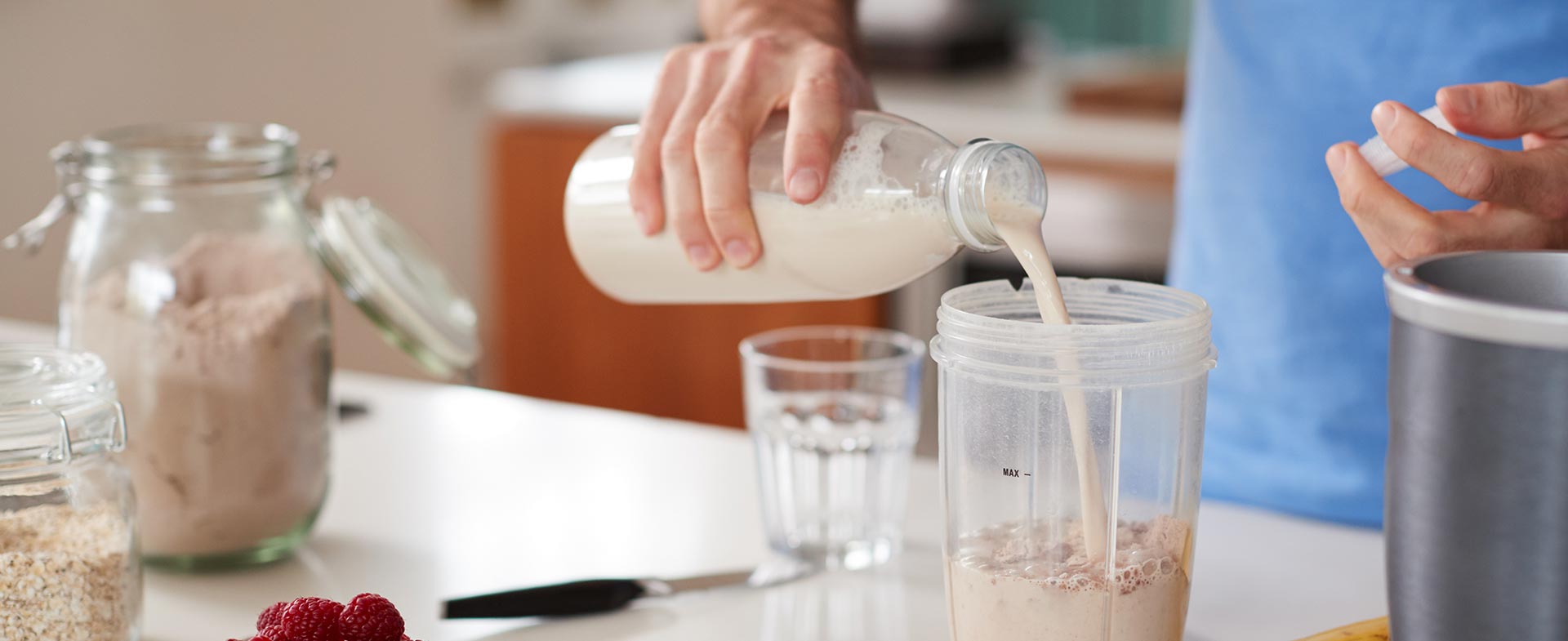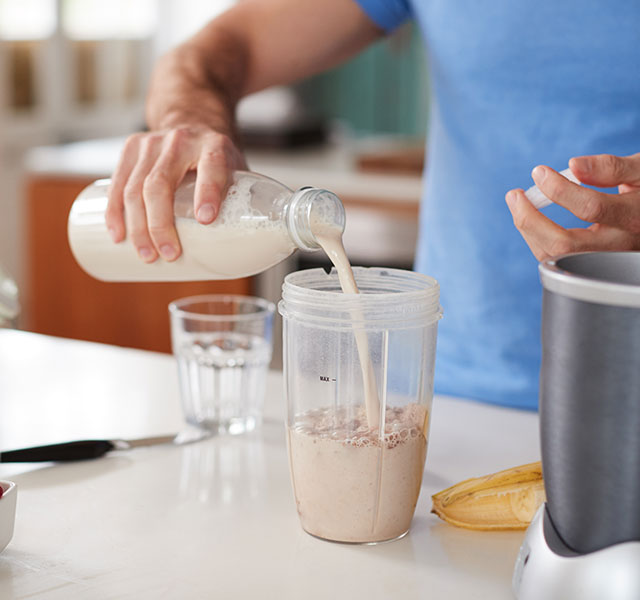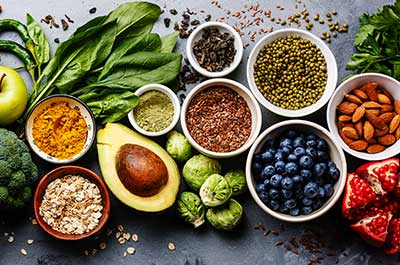Eating to promote your best possible health is always important. But for someone dealing with a disease like ALS (amyotrophic lateral sclerosis), getting the right nutrition is absolutely critical.
“Maintaining your weight is extremely important for people with ALS,” says Ximena Arcila, M.D., a neurologist at Henry Ford Health. “People with higher BMI (body mass index) have higher life expectancy than people with lower BMIs (especially below 20).”
How To Maintain Nutrition With ALS
ALS is a progressive neurological disease. It affects the nerves in the brain and spinal cord. As the disease progresses, the death of motor neurons causes weakness in almost all muscles of the body and makes it difficult to control muscle movements.
One way to slow the progression of ALS, maintain muscle control for longer and increase life expectancy is through proper nutrition and hydration. “If a patient comes to me and I see they are starting to lose weight, I tell them their priority is to try to maintain an ideal body weight,” says Dr. Arcila.
When it comes to selecting what foods to include in your diet, Dr. Arcila urges patients to opt for high-fat and high-calorie choices. “Good nutrition and variety is important, but calories are most important,” she says. “As long as someone doesn’t also have significant heart disease, I tell them to consume the highest calorie foods possible.”
That’s because ALS is a disease that affects your metabolism, making your body burn more calories. That means that most people with ALS need more calories than they did before their diagnosis, just to maintain the same weight.
In addition to getting healthy nutrients from food like fruits and vegetables, Dr. Arcila suggests looking for any possible ways to add extra calories and fat into your diet. “Add cream to your fruit, add sugar or honey to foods, prepare vegetables with butter and cheese and switch to full-fat versions of yogurt, cheeses and milk,” she says. “Boosting calories is usually the best way to boost your health.”

Neurology At Henry Ford
Diet Challenges With ALS
As ALS progresses, people often experience physical limitations that make eating and drinking more difficult. Difficulty swallowing is a very common problem for people with ALS.
“When swallowing becomes more challenging, people start losing weight and also aren’t able to stay well hydrated because they aren’t drinking enough,” says Dr. Arcila. They key is to continue finding high fat, high calorie nourishment that’s easy to swallow. She suggests foods like ice cream, milkshakes, smoothies and protein shakes.
Preparing and cooking food can also become more challenging. It can help to stock your fridge and freezer with ready-to-eat meals. Setting up your kitchen to make accessing food simpler allows you to more easily meet your nutrition and hydration needs.
Tools To Help You Maintain Nutrition
As eating becomes more difficult, there are ways to help make it easier. Working with an occupational therapist, you can learn how to use some adaptive tools.
If you have difficulty twisting your hand to get a utensil to your mouth, you may be able to use specially angled forks and spoons. If you have trouble grabbing and holding onto utensils, try options that can attach to your hand. Large-handled cups and different types of straws can also make drinking easier. “These sorts of tools can help you maintain your nutrition as well as your independence,” says Dr. Arcila.
For people who aren’t able to get enough calories to maintain their weight, or enough liquid to stay hydrated, Dr. Arcila recommends considering a feeding tube. For most ALS patients, this is a tube that’s inserted directly into the stomach (and that’s not visible under your clothing).
“You can continue eating, but this allows you to easily supplement your diet with high-calorie formulas,” says Dr. Arcila. “That helps you keep weight on and keep your energy level higher.”
She finds that most patients don’t regret making the decision to get a feeding tube. “It can be a relief to be able to easily get the nutrition they need,” she says. “And then only eat the few things they truly enjoy that are safe to swallow and they don’t have difficulty eating.”
Reviewed by Dr. Ximena Arcila-Londono, a neurologist who sees patients at Henry Ford Hospital and Henry Ford West Bloomfield Hospital.



